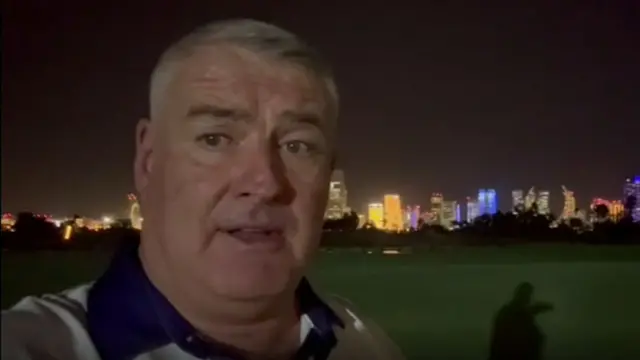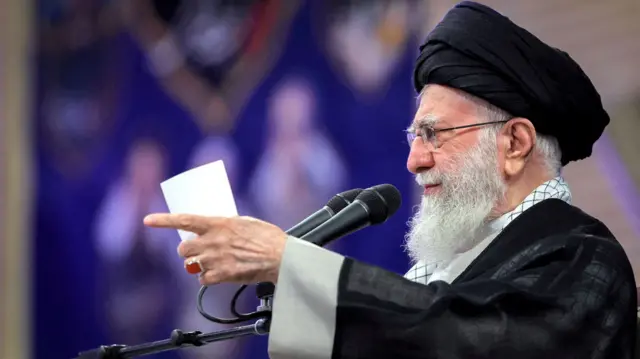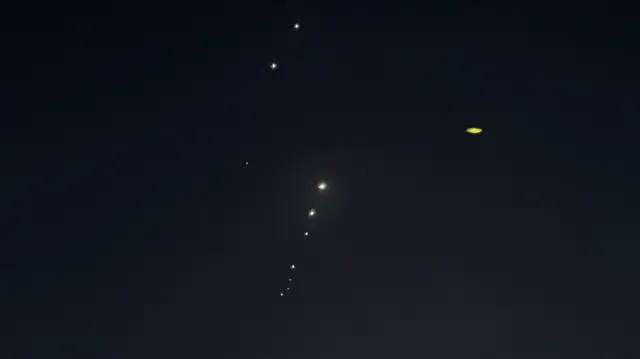
Ball seems to be in Tehran's court once againpublished at 23:03 BST 23 June
 Mark Lowen
Mark Lowen
Reporting from Tel Aviv
Israel is still hitting targets in Iran, with “unprecedented force”, says its defence minister. But at the same time, it’s being reported here that the Israeli government has passed a message to Iran via its Arab neighbours that it is keen to wrap up the war in the next few days.
Benjamin Netanyahu has said he’s not interested in a long war of attrition. Ten days of Iranian missiles, many of which have breached Israel’s defence shields, have caused fatalities and inflicted damage on buildings. And Israel is burning through its interceptors.
Donald Trump’s posts after tonight’s Iranian attack perhaps suggest he’s not in the mood to step this up.
That, coupled with Israel’s messaging, is beginning to look like a joint approach to Tehran to say: “enough is enough, we’re ready to stop if you are.”
As ever, it’s hard to read an unpredictable White House – but the ball once again seems to be in Tehran’s court as to whether a severely weakened regime decides to call time on this war.









